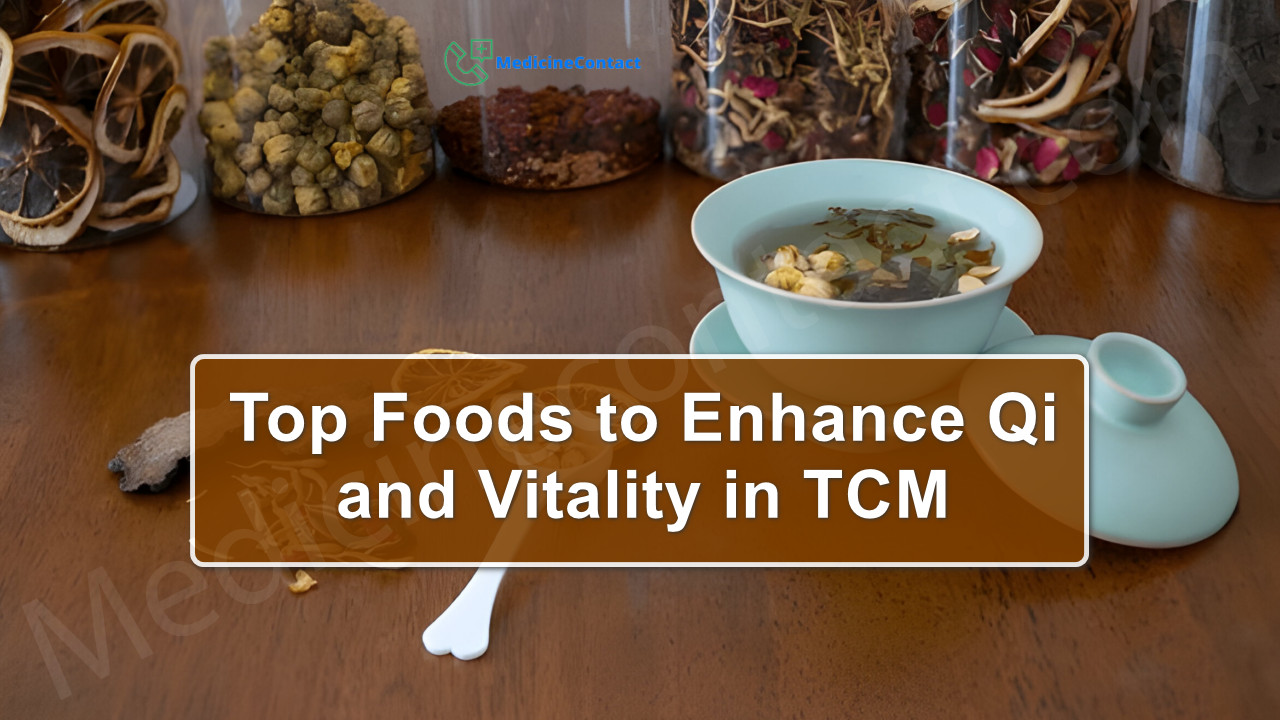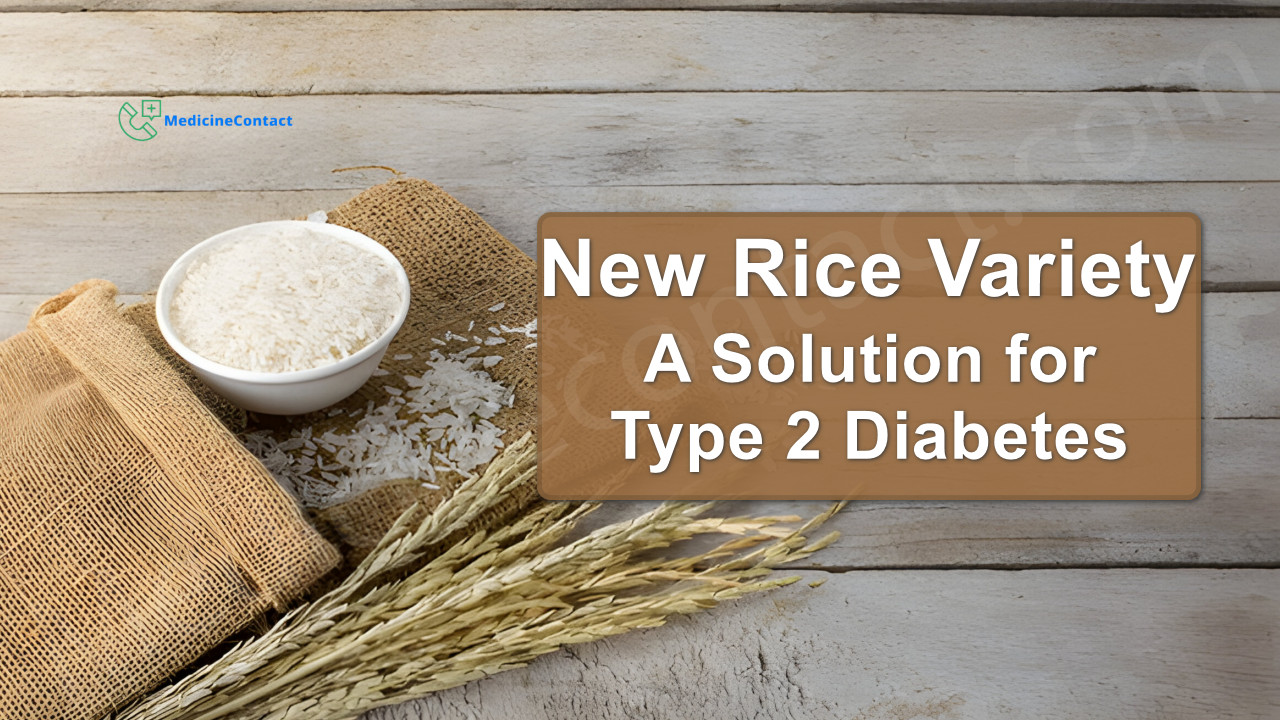
Understanding Qi Deficiency in Traditional Chinese Medicine (TCM)
What is Qi in TCM?
Qi, often translated as "life force" or "vital energy," is a fundamental concept in Traditional Chinese Medicine (TCM). It is believed to circulate through the body, maintaining health by balancing physical, emotional, and mental processes. When Qi flows freely, the body functions optimally.
Common Symptoms of Qi Deficiency
A deficiency in Qi can disrupt various bodily functions, leading to a range of symptoms:
- Fatigue: Persistent tiredness despite adequate rest.
- Digestive Issues: Bloating, poor appetite, and loose stools.
- Respiratory Problems: Shortness of breath and spontaneous sweating.
- Emotional Imbalances: Anxiety and low motivation.
- Physical Signs: Dry skin, hair loss, and a weak pulse.
What Causes Qi Deficiency?
Several factors can contribute to Qi deficiency:
- Genetics: Some individuals may be predisposed to lower levels of Qi due to hereditary factors.
- Poor Diet: Consumption of overly processed foods and lack of nutrient-rich meals can deplete Qi.
- Emotional Stress: Chronic stress and emotional disturbances can drain the body's energy reserves.
- Sleep Deprivation: Inadequate sleep prevents the body from replenishing its energy.
- Aging: Natural aging processes can gradually reduce the body's ability to produce and maintain optimal Qi levels.
- Chronic Medical Conditions: Diseases like chronic fatigue syndrome and diabetes are often linked to diminished Qi.
Understanding these aspects is crucial for identifying effective strategies for addressing Qi deficiency through diet and lifestyle changes.
The Role of the Spleen in Qi Deficiency and Its Connection to Diet
How the Spleen Extracts Energy from Food
In Traditional Chinese Medicine (TCM), the spleen plays a crucial role in digestion and energy extraction. It transforms food into Qi and blood, distributing these vital substances to nourish the organs and tissues. When the spleen is weak, this process gets disrupted, leading to an imbalance that can cause various health issues.
How Spleen Health Affects Your Energy Levels
A healthy spleen ensures efficient digestion and nutrient absorption, directly influencing your overall energy levels. When your spleen is strong, it effectively converts food into Qi, providing sustained energy throughout the day. On the other hand, a weak spleen can lead to chronic fatigue, lethargy, and weakened immunity because your body struggles to extract enough energy from food.
Health Issues Related to Weak Spleen Energy
Several conditions are associated with a weak spleen:
- Digestive Problems: Symptoms like bloating, gas, diarrhea, or poor appetite often signal spleen dysfunction.
- Fatigue: Persistent tiredness despite adequate rest is a common indicator.
- Weak Muscles: Muscle weakness or wasting may develop due to insufficient nourishment from impaired Qi production.
- Emotional Instability: Anxiety and depression might arise since a weakened spleen affects mental clarity and emotional balance.
Understanding the critical role of the spleen in TCM underscores the importance of dietary choices. Consuming specific TCM foods for spleen health can help combat weak Qi and enhance overall well-being.
5 TCM Foods to Combat Qi Deficiency and Support Spleen Health
1. Fermented Foods: Boosting Qi Through Probiotics and Gut Health
Fermented foods play a significant role in Traditional Chinese Medicine (TCM) for combating Qi deficiency. These nutrient-rich foods are renowned for their benefits in enhancing digestion and nutrient absorption, which are crucial for maintaining optimal energy levels.
Benefits of Fermented Foods
- Enhanced Digestion: Fermented foods contain probiotics that help maintain a healthy balance of gut bacteria. This balance is essential for efficient digestion, prevention of intestinal flora disorders, and improved nutrient absorption.
- Nutrient Absorption: The probiotics in fermented foods aid in breaking down food into more easily absorbable nutrients, thus ensuring the body gets the maximum benefit from the food consumed.
- Boosting Qi: By improving gut health and digestion, fermented foods help the spleen extract more Qi from food, thereby supporting overall energy levels and combating fatigue.
Examples of Fermented Foods
Incorporating fermented foods into your diet can be simple and delicious. Here are a few examples:

- Yogurt: A popular dairy product fermented by live bacteria cultures. Yogurt is an excellent source of probiotics that improve digestive health and enhance nutrient absorption.

- Sauerkraut: Made from fermented cabbage, sauerkraut is another probiotic-rich food that supports digestion and boosts energy levels by aiding in efficient nutrient extraction.

- Kefir: A fermented milk drink similar to yogurt but with a thinner consistency. Kefir contains a diverse range of probiotics beneficial for gut health.

Each of these foods can be easily incorporated into meals or enjoyed as snacks to enhance overall health, particularly in terms of digestive efficiency and energy production.
By focusing on these probiotic-rich options, you can significantly support your body’s ability to combat Qi deficiency through improved digestion and nutrient absorption. Ready access to these foods ensures that maintaining balanced energy levels becomes a seamless part of your daily routine.
2. Healthy Fats: Nourishing the Body's Energy Systems with Olive Oil and Salmon
Healthy fats play a crucial role in nourishing the body’s energy systems, particularly when addressing Qi deficiency in Traditional Chinese Medicine (TCM). These fats are essential for maintaining cellular integrity, supporting brain function, and providing sustained energy.
Benefits of Healthy Fats
Healthy fats are instrumental in:
- Enhancing energy levels: They provide a dense source of calories, which is vital for combating fatigue and improving overall vitality.
- Supporting cellular health: Omega-3 fatty acids, found in sources like salmon and olive oil, contribute to the maintenance of healthy cell membranes. These Omega-3 fatty acids are also known for their extensive health benefits.
- Boosting brain function: The brain relies heavily on healthy fats for optimal performance, which can help mitigate symptoms like mental fogginess associated with Qi deficiency.
Recommended Sources
Olive Oil
Olive oil is rich in monounsaturated fats and antioxidants. It has anti-inflammatory properties that can help support the digestive system, a key player in Qi extraction. Regular consumption of olive oil can aid in stabilizing energy levels and improving overall digestion.
Salmon
Salmon is an excellent source of omega-3 fatty acids, which are crucial for reducing inflammation and supporting heart health. The high protein content also makes it beneficial for sustaining energy release throughout the day.
Other Sources
Other recommended sources of healthy fats include:
- Avocados
- Nuts and seeds (such as almonds and chia seeds)
- Flaxseed oil
Integrating these foods into your diet aligns with TCM principles by promoting balance within the body's systems. By incorporating these healthy fats alongside fermented foods, lightly cooked fruits and vegetables, adaptogenic herbs, and whole grains, you can effectively combat Qi deficiency through a holistic approach.
3. Lightly Cooked Fruits and Vegetables: Supporting Digestion and Energy Levels with Metabolic Harmony
In Traditional Chinese Medicine (TCM), lightly cooking fruits and vegetables is believed to make them easier to digest and maximize their energy-boosting benefits. Unlike raw foods, which can be hard on the digestive system, lightly cooked produce is simpler for the body to break down and absorb, promoting both healthy digestion and energy levels.
How Lightly Cooked Produce Supports Digestion
Light cooking methods such as steaming, blanching, or sautéing help to:
- Preserve Nutrients: Gentle cooking retains essential vitamins and minerals.
- Enhance Digestibility: Softening fibers makes it easier for the body to absorb nutrients.
- Support Spleen Qi: Warm foods are less taxing on the spleen, aiding its role in Qi extraction from food.
Suggested Fruits and Vegetables Beneficial for Qi
Several fruits and vegetables are particularly recommended in TCM for their ability to support Qi:
- Root Vegetables: Carrots, sweet potatoes, and parsnips are grounding and nourishing.
- Leafy Greens: Spinach, kale, and bok choy are rich in essential nutrients.
- Squash: Pumpkin and butternut squash provide a good source of energy.
- Berries: Blueberries and strawberries offer antioxidants that enhance overall vitality.
These foods, when lightly cooked, align with TCM's principles of using food as medicine. They help restore balance within the body's systems by addressing metabolic imbalances associated with Qi deficiency.
Combining these dietary practices with fermented foods, healthy fats, adaptogenic herbs, whole grains, and probiotics creates a holistic approach to managing intestinal flora disorders and metabolic imbalance in Qi deficiency. This method supports not only digestive health but also overall well-being.
4. Adaptogenic Herbs: Regulating Stress and Boosting Energy Naturally
Adaptogenic herbs, such as ginseng, play a crucial role in Traditional Chinese Medicine (TCM) for their ability to regulate stress and enhance energy levels. These herbs are known for their unique properties that help the body adapt to stressors, whether physical, chemical, or biological.
Role of Adaptogenic Herbs
- Ginseng: Often referred to as the "king of herbs," ginseng is valued for its potential to boost energy, improve mental clarity, and enhance overall vitality. Studies suggest that ginseng helps reduce fatigue by affecting the adrenal glands, which are responsible for releasing stress hormones like cortisol.
- Astragalus: Another powerful adaptogen, astragalus is used to strengthen the immune system and improve resistance to stress. It's particularly beneficial in restoring Qi by enhancing the digestive system's efficiency.
- Rhodiola Rosea: Known for its anti-fatigue and mood-enhancing properties, Rhodiola Rosea can help balance neurotransmitters in the brain, promoting a sense of well-being and reducing anxiety.
Restoring Balance Within the Body's Systems
Adaptogenic herbs support the body's internal equilibrium by:
- Regulating Cortisol Levels: By modulating the release of cortisol, these herbs help manage stress responses more effectively. This regulation prevents the depletion of Qi caused by chronic stress.
- Improving Energy Metabolism: Adaptogens enhance mitochondrial function, leading to better energy production at the cellular level. This improvement translates into higher overall energy levels.
- Strengthening Immunity: Many adaptogenic herbs have immunomodulatory effects, helping to bolster the body's defenses against pathogens that might drain energy reserves.
Incorporating adaptogenic herbs into your diet can be a natural way to combat Qi deficiency. They offer a holistic approach by addressing both mental and physical aspects of well-being. For optimal benefits, these herbs are often combined with other dietary strategies like consuming fermented foods, healthy fats, lightly cooked fruits and vegetables, and whole grains.
Understanding how various elements work together can provide a comprehensive plan for managing Qi deficiency.
5. Whole Grains: Sustaining Energy Release and Blood Sugar Regulation for Vitality
Whole grains play a critical role in Traditional Chinese Medicine (TCM) for their ability to provide sustained energy release and regulate blood sugar levels. Incorporating whole grains into your diet is essential for combating Qi deficiency and maintaining overall vitality.
Benefits of Whole Grains for Sustained Energy Release and Blood Sugar Regulation
Whole grains are packed with essential nutrients, including fiber, vitamins, and minerals, which contribute to a gradual release of energy. This slow digestion process helps in stabilizing blood sugar levels, preventing spikes that can lead to insulin resistance (IR) and other metabolic disorders.
- Fiber-rich: Whole grains like brown rice, quinoa, and oats are high in dietary fiber, supporting healthy digestion and promoting the growth of beneficial intestinal flora. This aligns with findings from a study that highlights the importance of fiber in our diet (source).
- Nutrient-dense: They are rich in B vitamins, iron, magnesium, and selenium—nutrients crucial for energy production and immune function.
- Low Glycemic Index: Foods with a low glycemic index release glucose slowly into the bloodstream, providing steady energy levels throughout the day.
Recommendations for Incorporating Whole Grains into Meals
To harness the benefits of whole grains:
- Breakfast: Start your day with oatmeal topped with nuts and lightly cooked fruits—this combination offers a balanced mix of complex carbohydrates, healthy fats, and essential vitamins.
- Lunch/Dinner: Include quinoa or brown rice as a base for salads or stir-fries. These grains pair well with lightly cooked vegetables and lean proteins.
- Snacks: Opt for whole grain crackers or popcorn as healthy snack options that support sustained energy without causing blood sugar spikes.
Incorporating these dietary changes can help address symptoms related to Qi deficiency such as fatigue and digestive issues. This focus on whole grains aligns well with TCM's holistic approach to using food as medicine to restore balance within the body's systems. For more information on the health benefits of whole grains, you can refer to the Pescatarian Diet Plan PDF article on MedicineContact.com.
Lifestyle Changes to Support Treatment of Qi Deficiency Beyond Diet Alone
Addressing Qi deficiency goes beyond just changing your diet. Incorporating lifestyle practices can greatly improve the effectiveness of the treatment and promote overall well-being. Here are some key practices to consider:
Acupuncture for Qi Deficiency
Acupuncture is a fundamental part of Traditional Chinese Medicine, known for its ability to balance the body's energy flow. By targeting specific points on the body, acupuncture can:
- Enhance Energy Flow: Encourages the smooth movement of Qi, reducing blockages and restoring balance.
- Alleviate Symptoms: Helps reduce fatigue, digestive problems, and other symptoms related to Qi deficiency.
- Support Emotional Well-being: Lowers stress and anxiety, leading to a more peaceful state of mind.
Adequate Rest and Sleep
Rest and sleep are essential for replenishing Qi. Chronic lack of sleep can worsen fatigue and weaken the immune system. To optimize rest:
- Establish a Routine: Try to go to bed and wake up at the same time every day to regulate your body's internal clock.
- Create a Relaxing Environment: Make sure your bedroom is quiet, dark, and comfortable for better sleep.
- Mindful Relaxation Techniques: Practices such as deep breathing or meditation can help calm the mind before bedtime.
Stress Management Techniques
Emotional stress is a major factor in Qi deficiency. Adding stress management techniques into daily routines can help:
- Meditation and Mindfulness: Regular practice can lower stress levels and improve mental clarity.
- Physical Exercise: Activities like Tai Chi or Qigong build physical strength while promoting mental relaxation.
- Creative Outlets: Doing hobbies or creative activities provides an emotional release, helping with stress reduction.
Holistic Approach
Taking a holistic approach ensures all aspects of health are addressed. This may include:
- Herbal Remedies: Consulting with a TCM practitioner for personalized herbal formulas that support Qi balance.
- Balanced Lifestyle Choices: Incorporating regular exercise, maintaining social connections, and pursuing hobbies contribute to overall well-being.
By incorporating these lifestyle changes along with dietary adjustments, individuals can create a comprehensive strategy for effectively combating Qi deficiency.
Modern Research on the Link Between Qi Deficiency, Diabetes, and Dietary Interventions
Overview of Studies Linking Qi Deficiency with Chronic Conditions Like Diabetes
Recent studies have highlighted a connection between Qi deficiency and chronic conditions such as Diabetes Mellitus (DM). Researchers have observed that individuals with DM often exhibit symptoms consistent with Qi deficiency, including fatigue, poor digestion, and weakened immune function. These findings suggest that Qi deficiency might not only be a symptom but also a contributing factor in the development or worsening of diabetes.
Biochemical Changes in Qi Deficiency
Modern scientific approaches have begun to explore the biochemical changes associated with Qi deficiency. There is evidence to indicate that patients with Qi deficiency display altered metabolic profiles, including impaired glucose metabolism and decreased insulin sensitivity. Such biochemical changes align with the pathophysiology of diabetes, where the body's ability to manage blood sugar levels is compromised.
Modern Understanding vs Traditional Perspectives on Treatment
While Traditional Chinese Medicine (TCM) has long emphasized the importance of restoring balance through dietary and lifestyle interventions, modern research is beginning to validate these practices. TCM treatments for Qi deficiency often include:
- Dietary changes: Incorporating foods that are believed to boost Qi
- Herbal remedies: Utilizing adaptogenic herbs like ginseng
- Lifestyle modifications: Practices such as acupuncture and adequate rest
These interventions aim to restore energy flow and enhance overall health.
Integration of TCM Practices in Conventional Medicine
The integration of TCM practices into conventional medicine is gaining traction. Clinical trials are investigating how traditional dietary interventions can complement standard diabetes treatments. For instance, incorporating TCM-recommended foods like whole grains and fermented products may help regulate blood sugar levels and improve digestive health.
"The convergence of traditional wisdom and modern science offers promising avenues for holistic management of chronic conditions like diabetes," notes Dr. Li Wang, a leading researcher in integrative medicine.
By understanding both traditional perspectives and modern scientific insights, healthcare providers can offer more comprehensive care strategies tailored to individual needs.
Key Takeaways:
- Studies show a correlation between Qi deficiency and Diabetes Mellitus (DM).
- Biochemical changes in Qi deficiency mirror those seen in diabetes.
- Integrating TCM practices with conventional treatments offers a holistic approach to managing chronic conditions.
This combination of ancient wisdom and modern research highlights the potential benefits of using multiple methods for health management.
Conclusion: Embracing a Holistic Approach to Nourishing Your Body's Energy Flow Through Food Choices
Addressing Qi deficiency involves more than just recognizing symptoms; it requires a comprehensive approach that integrates dietary adjustments and lifestyle changes. Reinforcing the value of dietary choices, foods like fermented items, healthy fats, lightly cooked fruits and vegetables, adaptogenic herbs, and whole grains can significantly support the body's energy flow and spleen health.
Key Takeaways:
- Balanced Diet: Incorporating a variety of Qi-supporting foods helps maintain energy levels and digestive health.
- Lifestyle Practices: Complementing diet with practices such as acupuncture and adequate rest enhances overall well-being.
- Modern Insights: Understanding the link between Qi deficiency and chronic conditions like diabetes underscores the importance of holistic treatments.
Begin your journey towards better health by integrating these TCM-inspired foods into your daily meals. Pay attention to how your body responds and consult with a healthcare provider experienced in TCM to tailor strategies to your specific needs.
By embracing these holistic principles, you pave the way for improved vitality and balanced energy flow.
FAQs (Frequently Asked Questions)
What is Qi deficiency in Traditional Chinese Medicine?
Qi deficiency refers to a state in Traditional Chinese Medicine (TCM) where the vital energy, or 'Qi', is insufficient to support the body's functions. This can lead to various symptoms such as fatigue, digestive issues, and weakened immunity.
How does diet play a role in treating Qi deficiency?
In TCM, diet is crucial for restoring Qi balance. Consuming foods that nourish the spleen and enhance digestion, such as fermented foods, healthy fats, and whole grains, can help improve energy levels and combat Qi deficiency.
What are some common symptoms of Qi deficiency?
Common symptoms associated with Qi deficiency include fatigue, digestive issues like bloating or irregular bowel movements, shortness of breath, and a general feeling of weakness or low energy.
Which foods are recommended for combating Qi deficiency?
Some recommended foods to combat Qi deficiency include fermented foods (like kimchi and yogurt), healthy fats (such as olive oil and salmon), lightly cooked fruits and vegetables, adaptogenic herbs (like ginseng), and whole grains.
What lifestyle changes can support treatment for Qi deficiency?
Beyond dietary changes, additional lifestyle practices such as acupuncture, adequate rest, stress management techniques, and regular exercise can complement the treatment of Qi deficiency by promoting overall well-being.
Is there modern research linking Qi deficiency to chronic conditions like diabetes?
Yes, modern research has explored the connection between Qi deficiency and chronic conditions such as diabetes. Studies have indicated biochemical changes associated with Qi imbalance that may contribute to the development of these conditions.
Disclaimer: This article is for informational purposes only and does not constitute medical advice. Always consult with a healthcare professional before starting any new treatment regimen.




